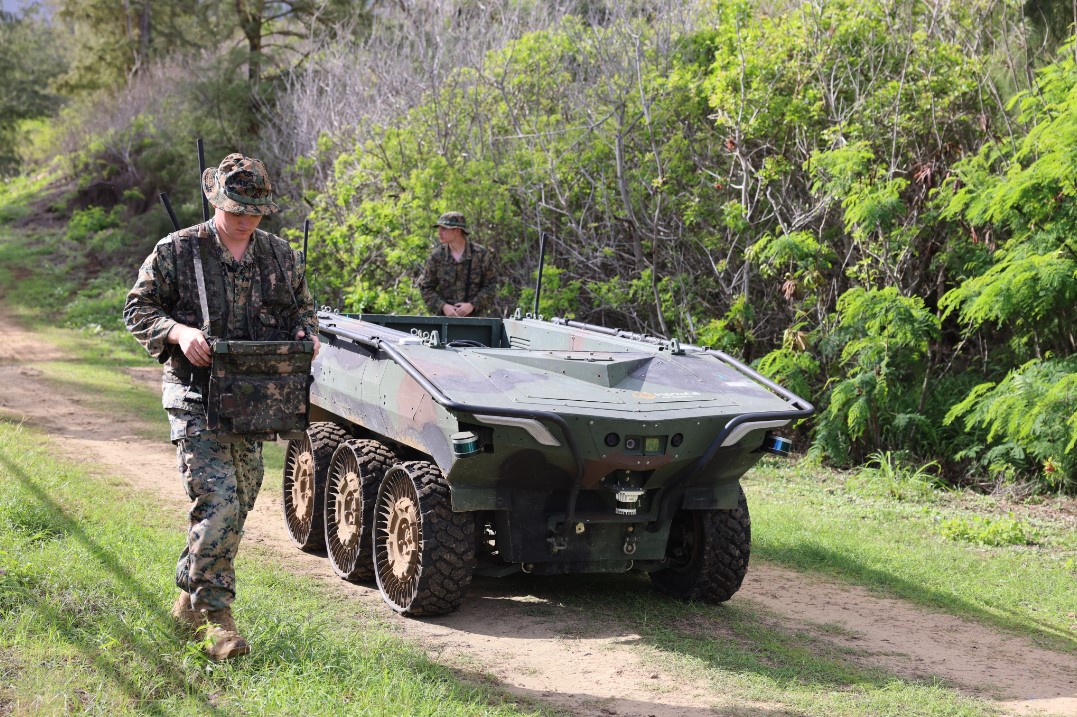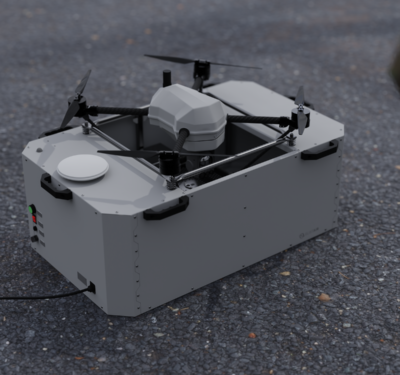
In a development aimed at modernizing military logistics and advancing autonomous operational capabilities, the U.S. Marine Corps, in collaboration with the U.S. Army and the Ministry of National Defense of the Republic of Korea, conducted a test of a South Korean Unmanned Ground Vehicle (UGV) prototype in Honolulu, Hawaii, in mid-December.
This Foreign Comparative Test (FCT) represents a concerted effort by the Marine Corps Systems Command, III Marine Expeditionary Force (MEF), the Army’s Ground Vehicle Systems Center, and South Korean defense partners to explore the potential of advanced unmanned technologies within military operations.
The test focused on evaluating the UGV’s capabilities in artificial intelligence and machine learning, critical for autonomous navigation and task completion in various operational scenarios. The selection of the South Korean UGV prototype underscores a strategic approach to leveraging mature foreign technologies to enhance the U.S. military’s capabilities efficiently and cost-effectively.
David Keeler, from the Marine Corps Systems Command, highlighted the relevance of UGVs in supporting the operational shift towards smaller, more agile units. The autonomy offered by UGVs can supplement tactical vehicle operations, providing rapid deployment and support without the need for licensed operators. This capability is increasingly vital as modern warfare evolves, with logistics becoming a contested aspect of military engagements, as evidenced by recent conflicts.
Steve Duong, International Affairs Specialist at the Marine Corps Systems Command, emphasized the strategic importance of incorporating such technology to ensure logistics support in dangerous environments. The use of smaller, less detectable platforms for transporting essential supplies can significantly reduce vulnerability to enemy surveillance and attacks.
The primary goal of the FCT was to assess the UGV’s use of artificial intelligence and machine learning for mission completion, highlighting the potential for such technology to impact future military operations significantly. Durgadath Nanan, III MEF science advisor, pointed out the importance of accessing foreign expertise in these areas, acknowledging that while the U.S. has considerable capabilities, it does not exclusively hold the most advanced technologies in all fields.
This test not only serves as an evaluation of a promising technology but also as an exploration into the future of military logistics and operations. It demonstrates the U.S. Marine Corps’ commitment to innovation and collaboration with international partners to address the challenges of modern warfare.
The involvement of the Ground Vehicle Systems Center in planning and executing the test underlines the collaborative nature of this effort, ensuring that the evaluation benefits from comprehensive expertise in UGV design and testing.
The feedback from the 3d Littoral Logistics Battalion Marines, who operated the UGV during the test, will provide valuable insights into the vehicle’s performance and its AI and machine learning capabilities, informing future decisions on integrating such technologies into military operations.
As the Marine Corps continues to assess and define requirements for unmanned ground vehicles, this test marks a step towards realizing the vision of Force Design and enhancing the capabilities of the U.S. military in contested environments.






